Sunday Fun Day! Sunday School Painting Day!
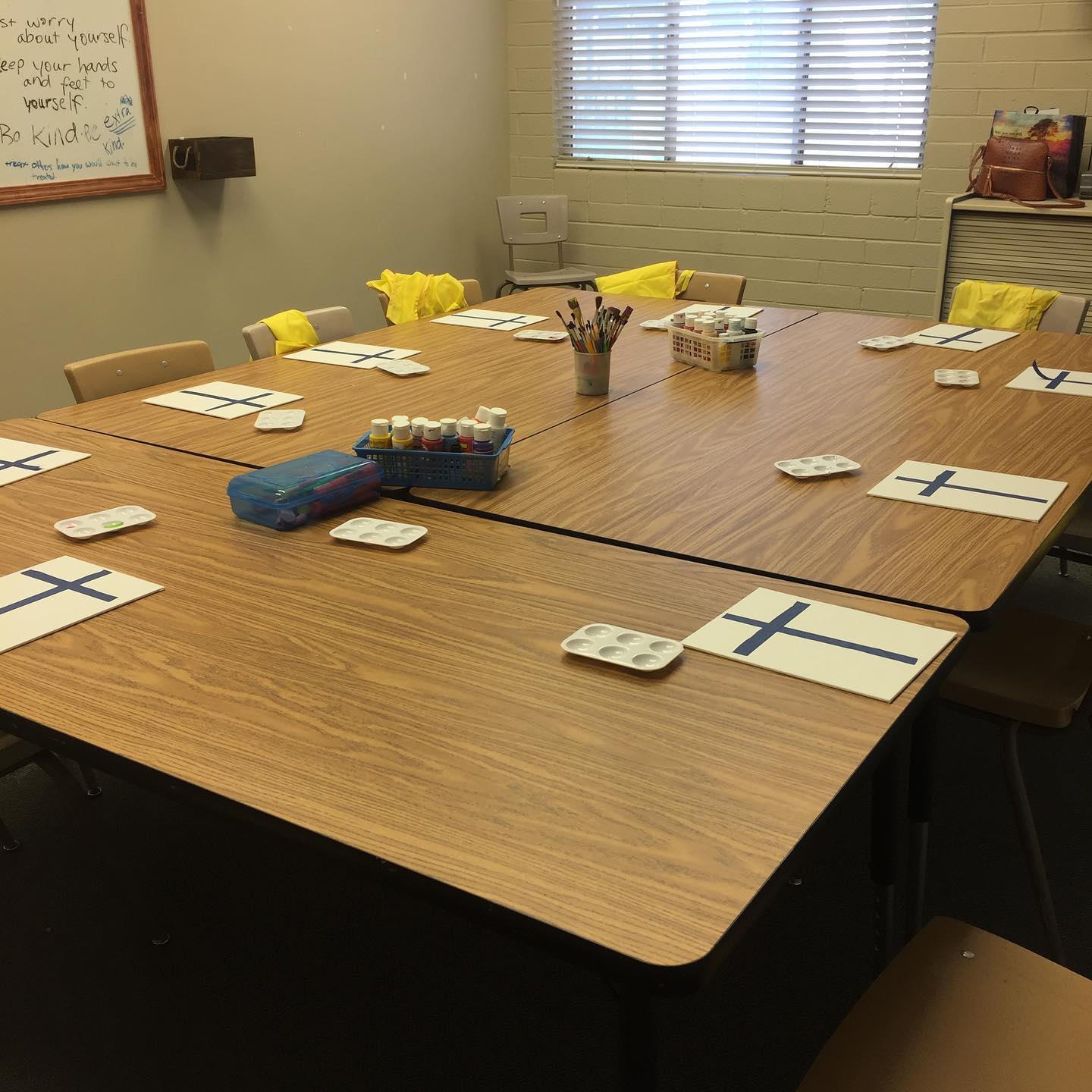
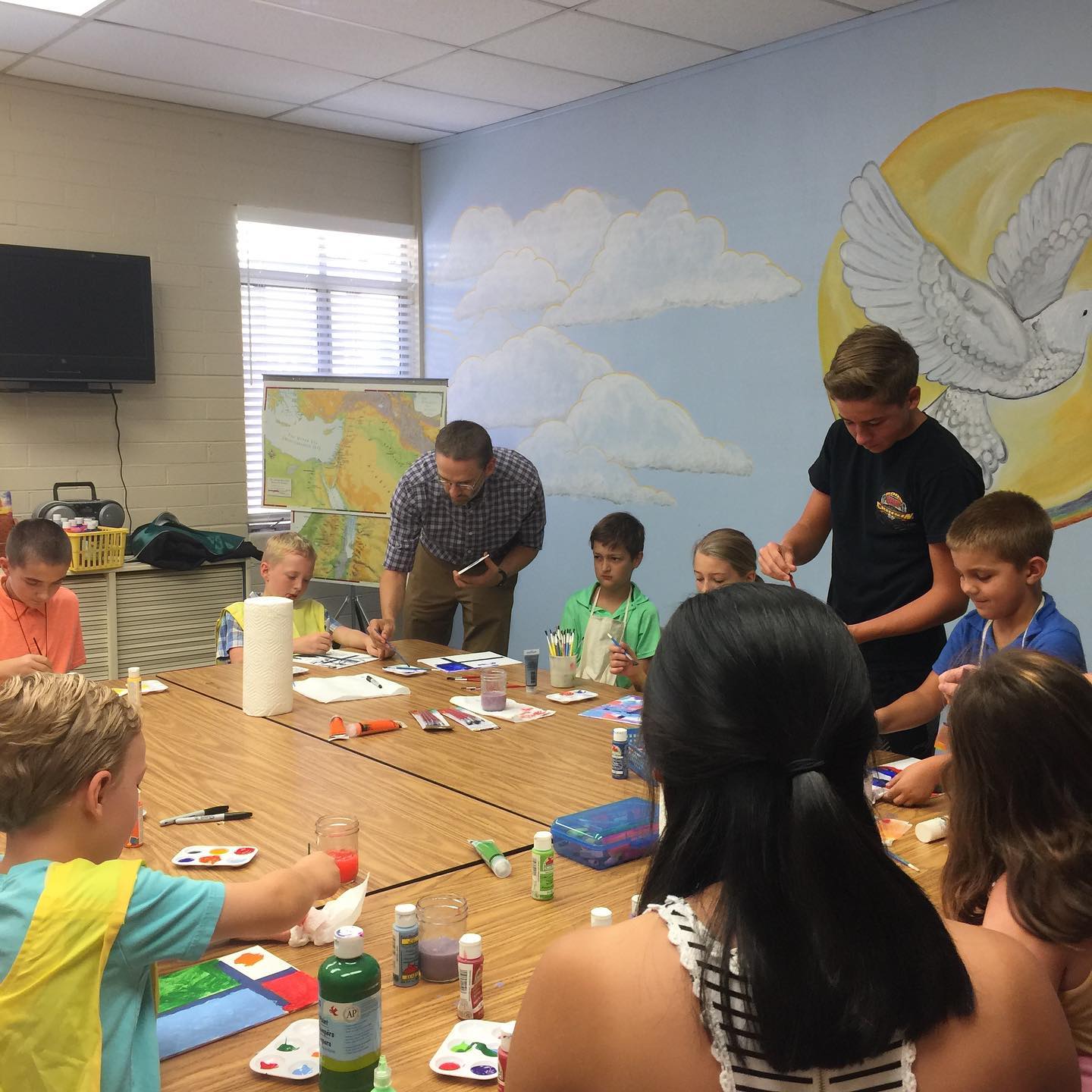
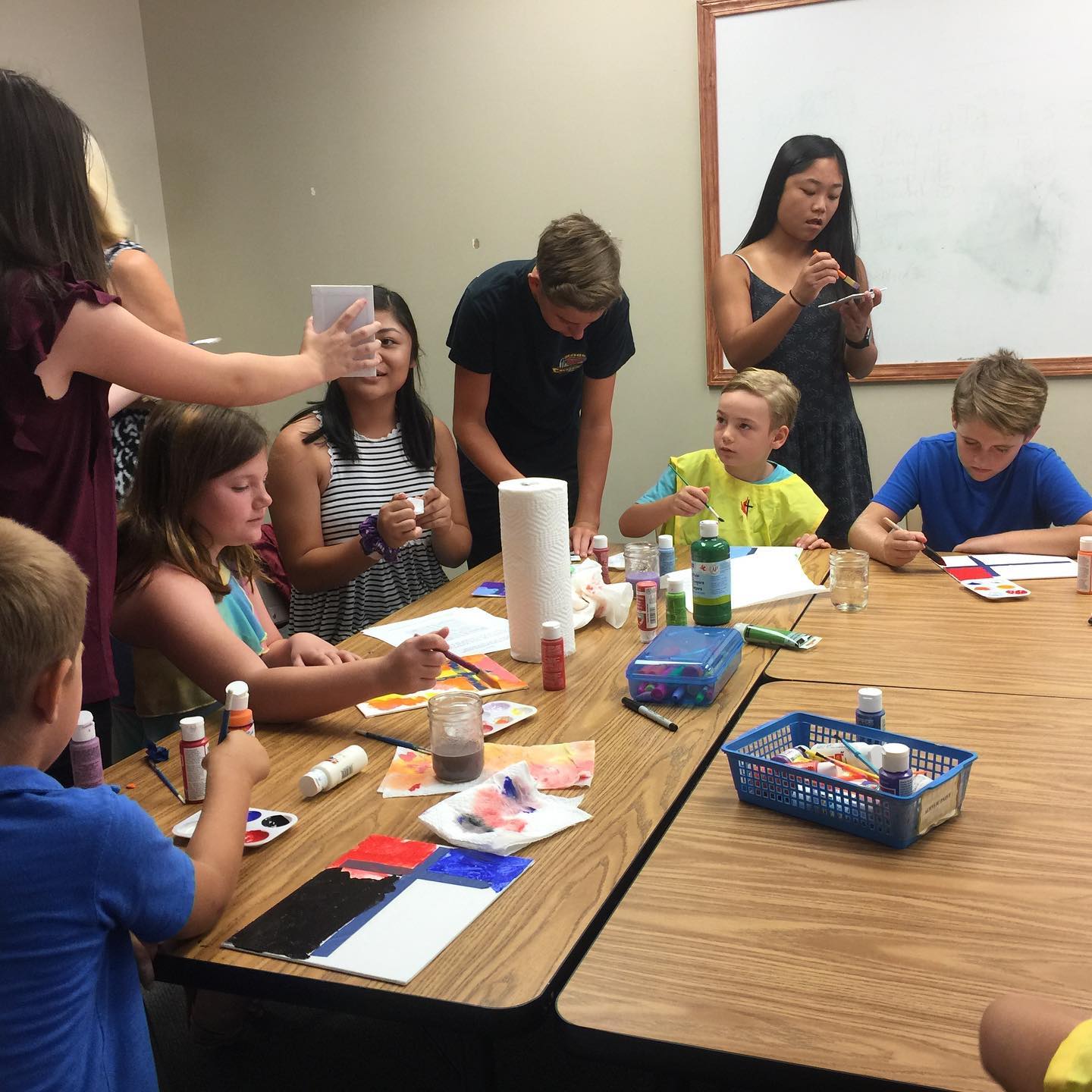
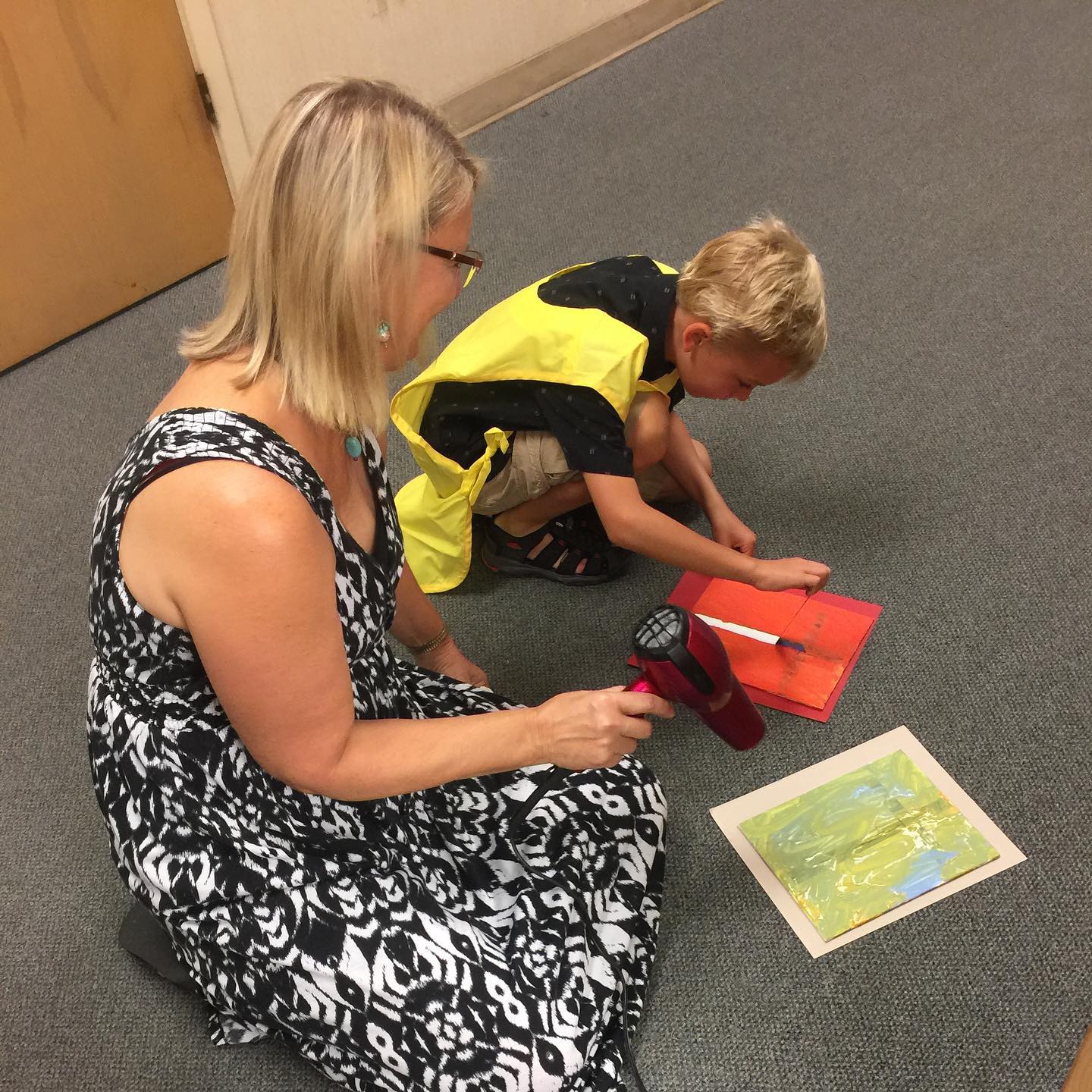
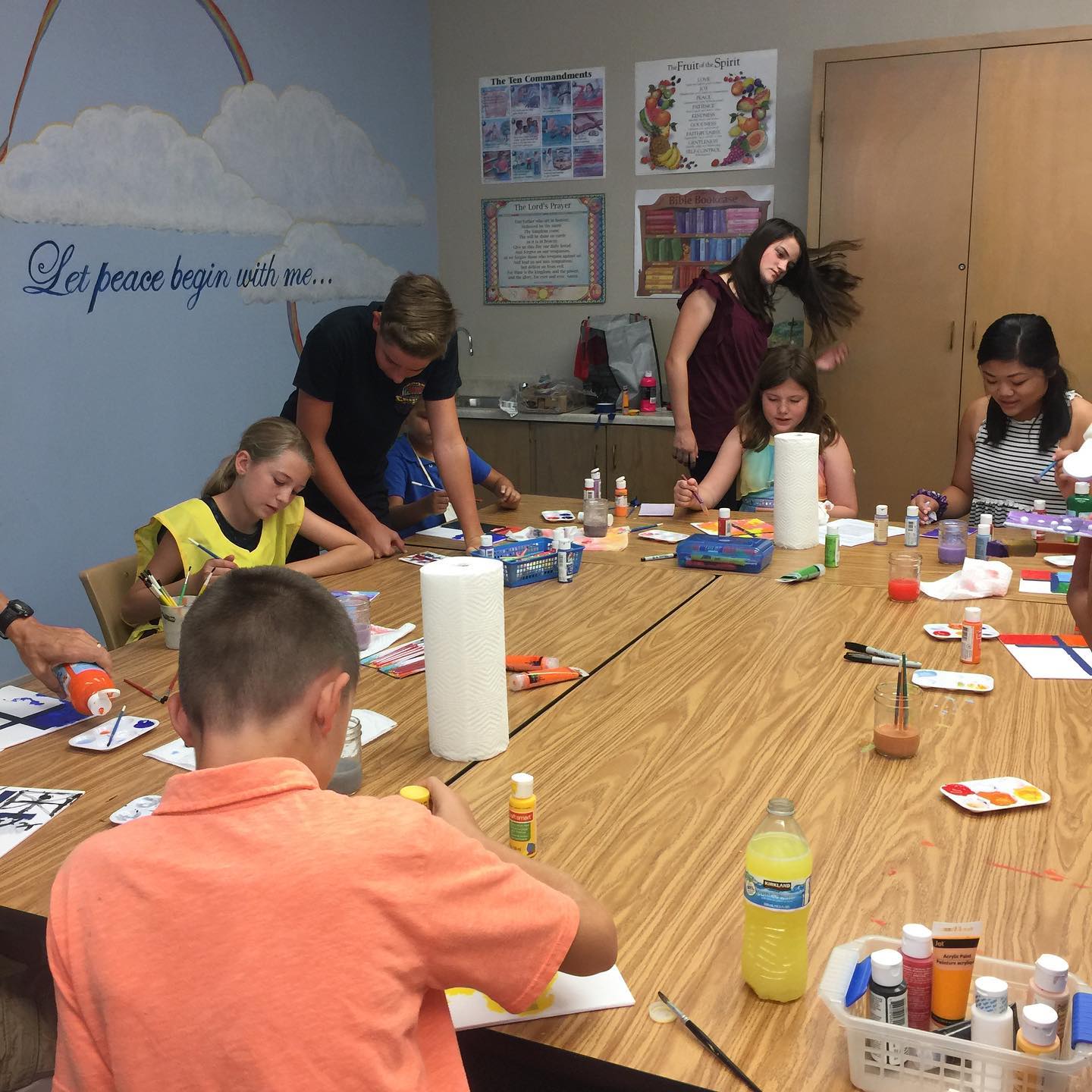
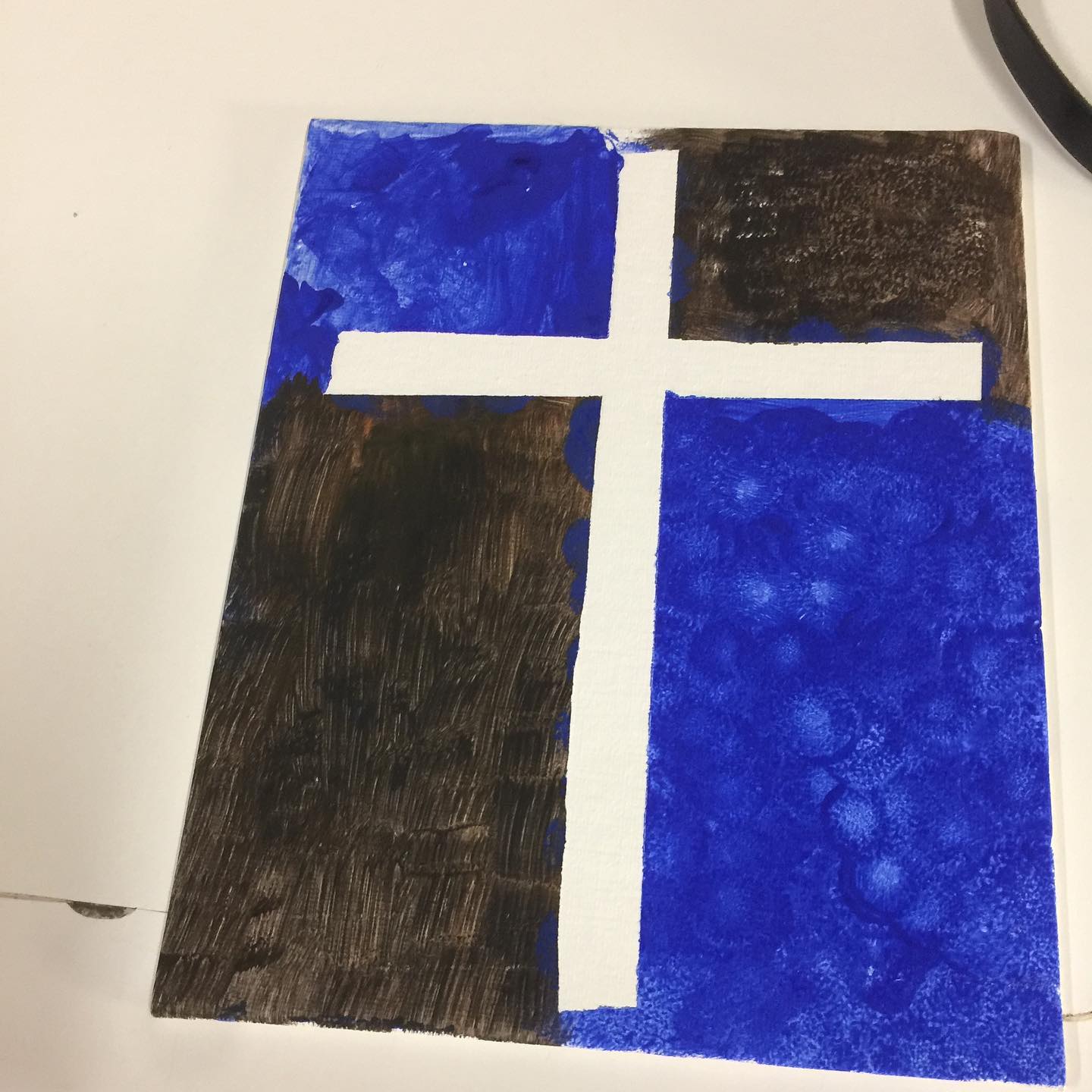
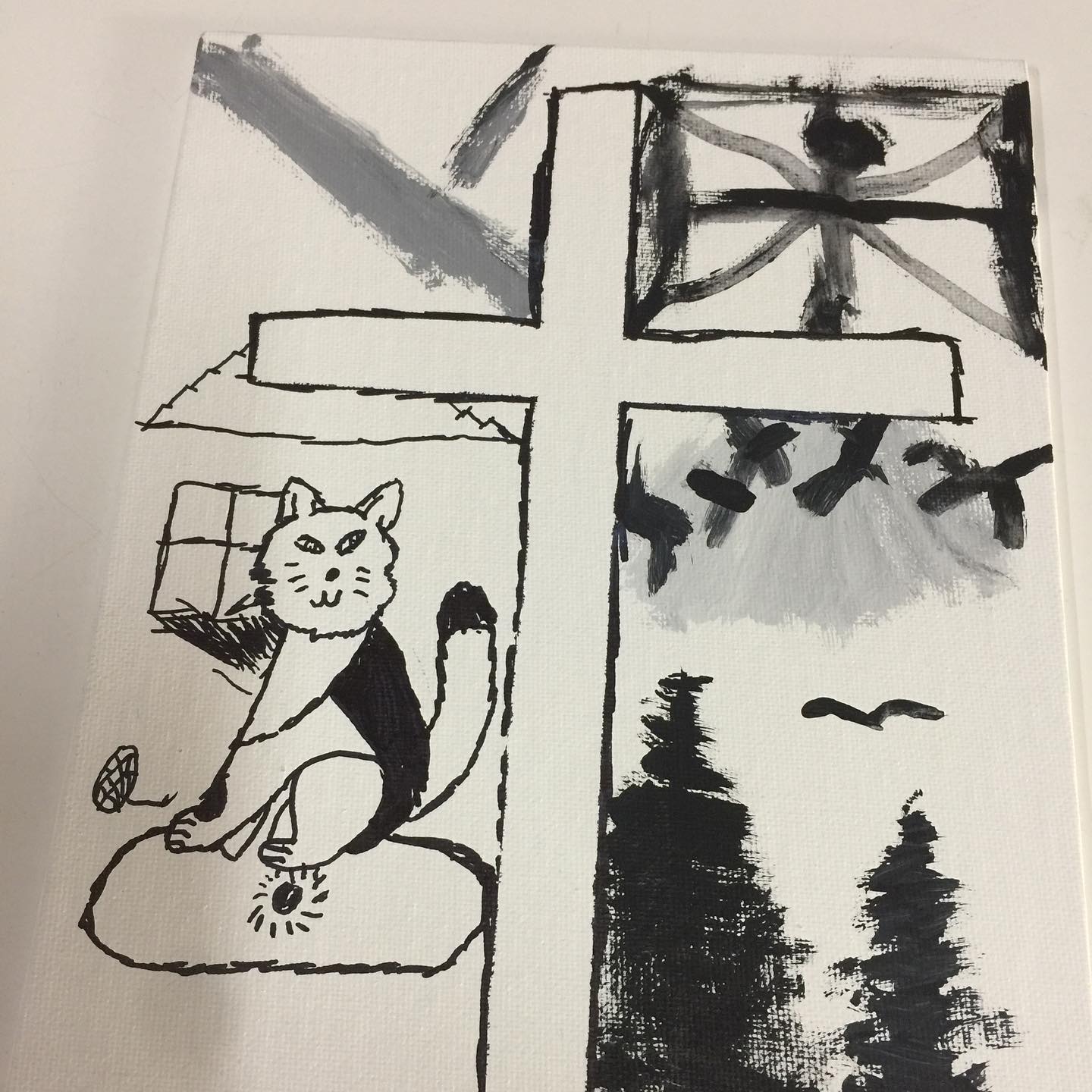
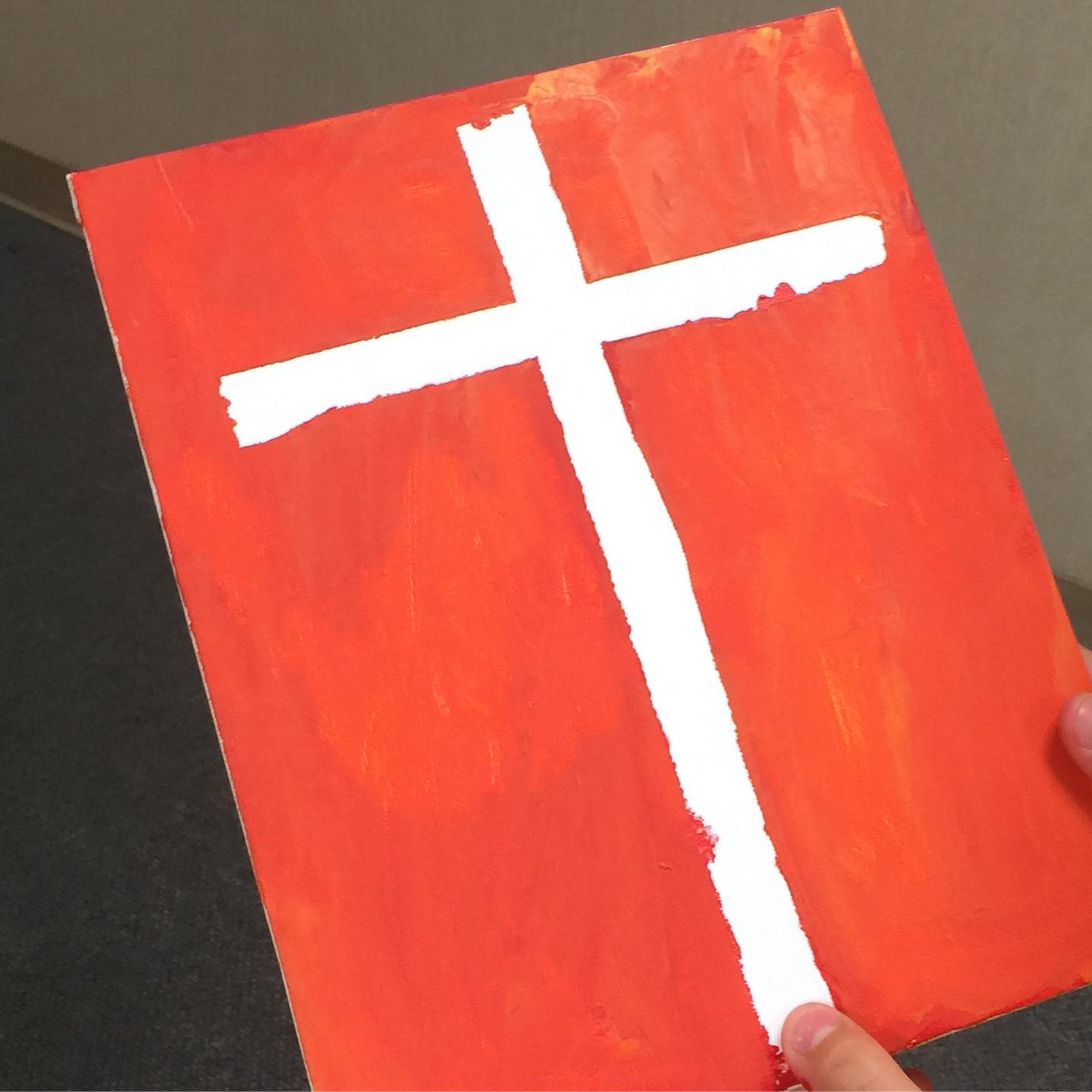
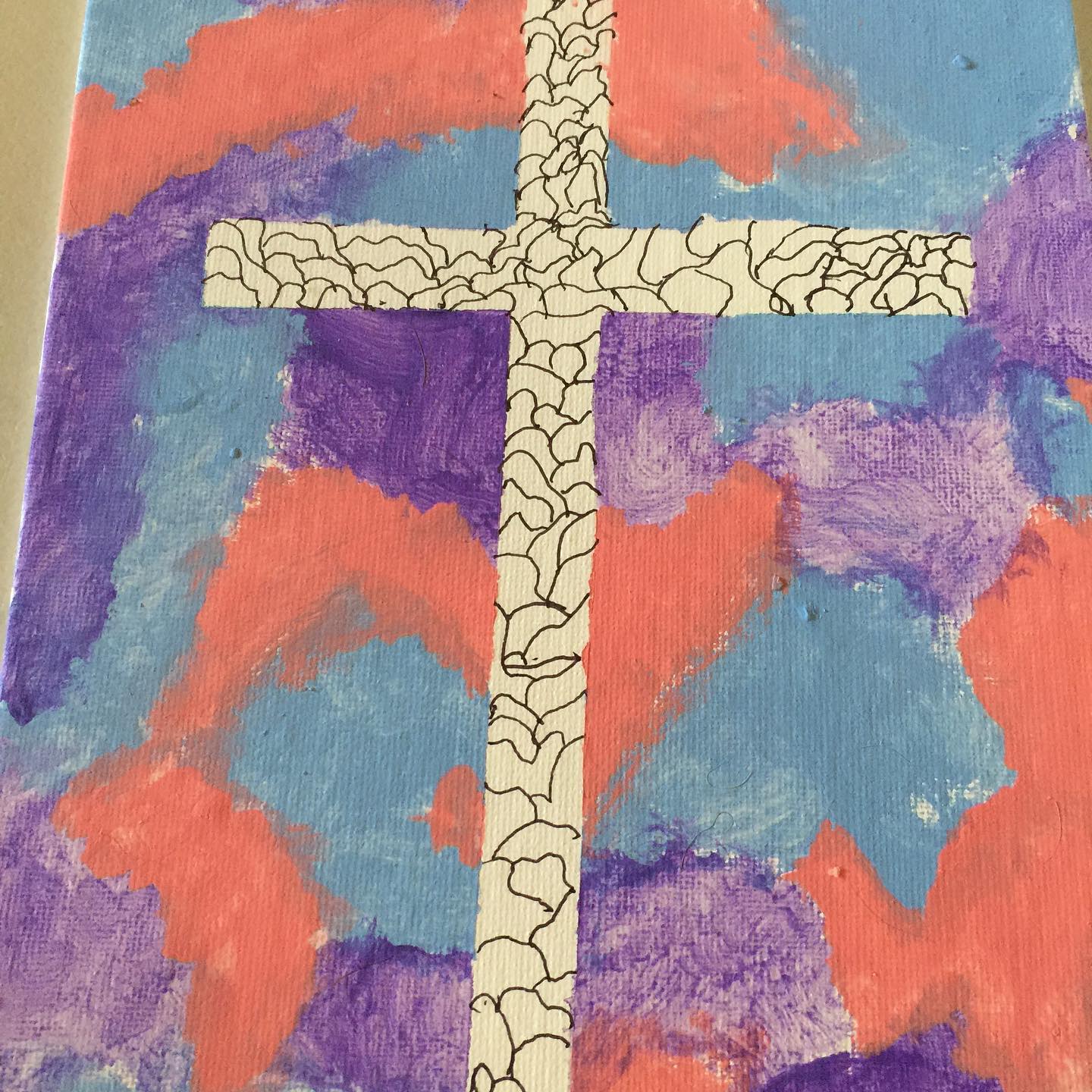
During the month of June, I had the wonderful opportunity to study abroad in Salzburg, Austria. This location provided me with so many incredible learning opportunities and options to immerse myself in Austrian culture, and as the birthplace of Mozart, was the perfect place to study classical music. Nearly every day my class went to a concert, and we got to hear everything from professional operas to baroque music played on period instruments. My favorite concerts, in particular, were a violin and cello duo known as BartolomeyBittmann, and a university production of Joseph Haydn’s opera, Il Mondo Della Luna; both performances took place at the Mozarteum, a music university in Salzburg.
One weekend, my class took a trip to Vienna, one of the most important cities in the world for classical music. I had always heard about musicians who visited the graves of all the great classical composers in Vienna, but little did I know that that was our first stop in the city, and suddenly I was at the Wiener Zentralfriedhof (Vienna Central Cemetery), and my dream of paying homage to the composers came true. The majority of the famous composers who had died in/near Vienna had been moved to this cemetery to be buried in the Composers’ Circle, including Ludwig Van Beethoven, Johannes Brahms, Johann Strauss, Franz Schubert, Arnold Schoenberg, among others. In the center of the circle, of course, sat a monument dedicated to Mozart, since the exact location of his burial is unknown. Standing in the presence of the very people who composed the most highly regarded music was absolutely phenomenal, and greatly helped to inspire my career.
Another weekend, some of my friends and I travelled to Prague, Czechia, to learn about the history and culture of the city. While there, we visited the Czech Museum of Music, which contained possibly the largest collection of old musical instruments I have ever seen. I loved going through each room and learning what each instrument sounded like and how they differ from all of the various instruments we have now. My favorite instruments in the museum were the giraffe piano, fairground organ, and the random brass instruments with two bells instead of one, none of which I had previously seen in person. The whole museum provided a completely immersive way of learning about the history and developments of each instrument we use today, which I feel is crucial knowledge for the modern musician.
The end of my time in Austria brought so many more new experiences that I could have only ever dreamed of having. We visited the filming locations of The Sound of Music, and had a fascinating discussion with our tour guide about the impact of World War II politics on Austria, both as individuals and as a country. All of this helped us to complete our course and discuss more thoroughly what “classic” really means and why. I am incredibly grateful for this opportunity to study what I’m most passionate about, and I will carry this new knowledge throughout my career.
Ashley


Paintball
by Alex
One thing many of you don’t know about me is that I love to play paintball. What is paintball, you might ask? Paintball is essentially a team game of tag or “capture the flag” using paintball guns and little balls of paint. The fields have bunkers to hide behind as you “hunt” down the other team.
I first played years ago when a friend had his birthday party at Extreme Paintball Park (between Turlock and Oakdale, in the middle of an orchard). What’s better than getting to run around and shoot people with paint! I started playing a little more frequently and seriously when I was a junior in high school when a friend of mine invited me to go out with him and some friends. Playing at least once a month led to me becoming a “card” referee one day of the weekend. The “pay” was a free box of paint and day pass which was perfect so I could play the other day. I’m now a paid referee at least one day a week.
As a referee, I inform groups of the rules, and take them out to the field. While out on the field I check if people get hit with a paintball and make sure they leave the field if they have been ‘tagged’. I also make sure people are following the safety rules, especially the one of keeping their mask down as long as they are in or near the field. At times, the players want to argue with me regarding a call. I have had to learn to stay calm and diffuse the situation. There have been a few occasions where I have had to ask people to leave the park due to their behavior. Being a referee has somewhat started to prepare me for my future career in law enforcement.
This past winter I decided to try out for a competitive paintball team. I am a member of one of the 3-man squads. We practice at least once a month and have attended two tournaments in Sacramento so far. At both tournament, my 3-man squad took home the first place trophy. Being on a team requires you to communicate well with the other 2 guys on the field with you. We are constantly yelling back and forth about where the other team is. In watching other teams play, the better the communication, the better we do.
Paintball is for all ages who like a fun, fast-paced game. You can check out the park at Extreme Paintball | The Central Valley's Best Paintball Park & Store Better yet, come out and experience it for yourself.

“And my pointe dancers were the entertainment”
- from telescopes to Joseph, God’s call from afar, to life’s adventure
In the seeming nonsense of our everyday lives, sometimes a person comes forth to help us to unravel the disorder. There are people who help us to make importance to our everyday lives. One of these people happens to be a member of our church. As she is rather quiet, you may be unaware of the yarns that are spun under her spell, of the dancing that is done by her example, by her instruction. You may not know of her lively choreography and rich web design.
Hilary Smith Callis was born and raised in Turlock, and left town to study Greek and Latin at UCLA. After graduation, Hilary lived in San Francisco for ten years. She and her husband Neill worked for NASA’s Stratospheric Observatory for Infrared Astronomy (SOFIA), which involves a 2.5 meter telescope that makes observations from 41,000 feet in the air.
Then, their first child was born. “Having Daniel, Neill and I realized how hard it is to raise a child in San Francisco. We had a garage,” Hilary remarked (which apparently is a sign of success in the Bay Area!), but from the sound of it, raising children in the city must be a far cry from the experience of growing up in Turlock. Hilary had been born into the Smith family, “who had been farming for four generations (mostly melons),” she said. “The opportunity arose for Neill to join my family’s farming operation, so we jumped at the opportunity.
Hilary already had a business that she had started while working for NASA. When asked what is, or has been her major occupation in life, Hilary looked confused: “It’s changed so many times!” She finally concluded that her occupation is “making things.” The list of things includes “homemade yogurt, bread, cottage cheese, clothes, knitting patterns, Hey Turlock [a website and business she co-founded with fellow FUMC member Alison Cox Verissimo] . . . and of course, a home.”
Hilary still continues her online business, which arose from her interest in knitting. It started “while commuting through the Bay Area fifteen years ago. It was popular to start a knitting blog, because you didn’t necessarily know any knitters. Then, I started tinkering with other people’s patterns, and coming up with my own. Because I had my blog, my original patterns became noticed, and publications contacted me to publish. The encouragement led to my starting my business.
“When I started my blog, I wanted it to have some classical undertones, so I named it the Yarniad, after the Iliad, which I first read in the Interviewer’s class!” Photos and information about Hilary’s yarn creations can be found at [http://www.theyarniad.com/p/about.html ]
“I’ve always had the urge to make things since I was a child. My mother and both my grandmothers are makers. I’m not sure if it’s Nature, or Nurture!” Hilary’s mom, Kathy Smith, “sews a lot for the home (ten-foot long curtains!), can recover a chair, install a ceiling fan.” One grandmother could “make anything . . .
a rug, once; knitting, sewing, canning as well.” The other grandmother was described as “an avid sewist!” When the Interviewer raised his eyebrows, Hilary said, “We try to use the word ‘sewist,’ not ‘sewer,’ because otherwise it looks like the person is involved with sewage!”
When asked about an adventure she didn’t mind sharing. Hilary at first drew a blank. Then she said, “Well, this whole adventure into ballet, my work on teaching ballet classes at Westside Ministries . . . . I was moved by Pastor Charles’ sermon today, when he said that sometimes when we are called to do something, we say, ‘There’s got to be somebody else! Why would you want me to do it?’”
Hilary now teaches ballet at the Center for Urban Performance and Service (CUPS), in Turlock. “This was completely unchartered territory for me. Although I danced for so long, I’d never taught formal classes, nor choreographed, so I had to learn to do all these things.” Hilary said, “This opportunity came about when I reconnected with an old ballet teacher of mine. Coleen Patterson was the ballet mistress at Central West Ballet when I was studying ballet in the 90’s. Recently, she approached me about substituting for her when she was recovering from hip surgery. This goes back to Pastor Charles: why me? Why now? But when God calls, He will equip you! Teaching ballet at Westside Ministries is one of the most fun and rewarding things I’ve ever done. I feel like I’m getting back so much more from them than I’m giving.”
This summer, Hilary is teaching kids from fourth to sixth grade. Last year, she taught intermediate and advanced ballet: teens to early twenties. “It’s a great mix of kids,” she said, “a lot from the Westside of Turlock, who might not have the opportunity to take classes at other studios because they’re more expensive." The price for the CUPS classes is very low, supported by Westside Ministries. The mix also includes “kids who want this art experience with a Christian bent. Christian kids who want to take Christian ballet.”
To the question of how Christian ballet differs from regular ballet, Hilary stated, “The classes are exactly the same in terms of technique. But the dancing and the performing are considered a form of praise or witness. We often pray before class. Kids also do Bible study. It’s part of the requirement of class. If they don’t turn in their work, they don’t get to perform.
“Performance uses some biblical tie-in. We just did the story of Joseph. It incorporated singing, dancing, acting, and aerial arts. I choreographed the pointe dancers. When Joseph’s brothers come to Egypt and don’t realize it’s Joseph who is in power, Joseph holds a banquet and . . . my pointe dancers were the entertainment!”
Hilary is grateful for her blessings, which include health and relationships. “I take a great deal of pride,” she states on her website, “in living in a place that supplies the US with so much of its fresh produce, and it’s wonderful being part of a small community again.”


“Like a teletype machine with top secret clearance,”
Priscilla Faria, years after working for the U.S. Airforce,
spends time keeping tabs on Jeff, and doing a number
of other interesting things.
It is difficult for many civilians to appreciate the diversity of roles played by those who serve in the military. Learning a little of Priscilla Faria’s experience may help. Born and raised in Turlock, Priscilla said she felt almost compelled: “I didn’t have a choice. I went into the Air Force when I turned 21.” Priscilla first studied business at MJC before serving at Travis Air Force Base from 1968 to 1970.
“I remember being lost at the time. I needed to get out of the area. I wasn’t going anywhere here. I was at a dead end, and had an urge to explore. Turlock was a great place to grow up in, but not a place where I could mature, become my own person.”
Priscilla’s service began with six weeks in boot camp, followed by twelve weeks in technical school, where she studied communications. She then began work on the telephone, directing calls at the base. “I was like an old switchboard operator,” having to look up numbers to connect calls. “So, I devised a phone directory.” The directory proved so successful for the base that Priscilla received an official commendation.
Later, Priscilla was “in charge of secret information, just putting it in order.” She describes herself as being “like a teletype machine. I decided what should be saved or discarded, according to their criteria. I had a top secret clearance.”
Boot camp for women in 1968 was “unlike now,” Priscilla explained. “There was no combat training. We learned the chain of command, military protocol, how to have your clothes in the closet. They strip you of your personality, so you can become part of a unit. We could not have hair below the collar.” This meant a hair cutting for Priscilla at the start. “To me, the classes in technical school seemed easy, maybe because I’d been in college for two years. Another girl and I vied for the top.”
One of the joyful highlights for Priscilla was getting “to introduce some girls from Nebraska to the ocean. About age 20, they’d never seen it. I enjoyed watching the expressions on their faces. We had to go more than once. Marla Melbourne!”
Priscilla lived for six years in Pacifica, and worked for Loomis Armored Car Service in the administrative office as a secretary, then stayed home to raise her daughter, Sarah. Priscilla returned to Turlock where she met Jeff, whom she married in 1979. “We met at work, working at the Gallo Ranch. I was impressed that Gallo would hire
someone (a man!) who had a ponytail!” (Gallo liked this man so well that they gave Jeff a house on the ranch, and a raise, to keep him from leaving, ponytail and all!)
Priscilla worked in banking at Security Pacific from 1980 to 1993, as a new accounts rep. “I liked it until banking changed their image, and I was expected to be a SALES PERSON!” The bank was taken over by Bank of America. “On Friday, after the bank closed, if a customer came in on Saturday, it was totally different. There was nothing on my desk, in order to make the customer feel like ‘they were IT!’ Just a telephone on the desk.”
“They sent me to Modesto. It hurt, at the time, because I’d been working so long, but later I realized it was a blessing because I just couldn’t sell.”
The most difficult thing in life for Priscilla? “Being a mom.! They don’t have classes on parenting.” Through all of the changes, Priscilla says, “God was guiding with His hand.”
Priscilla retired in 2012 from SCOE (Stanislaus Office of Education) after thirteen years, working with career development, doing attendance for tech schools. The clientele included high risk teenagers, such as those at John Allard School. Priscilla fondly remembers the Occupational Olympics, with up to “800 kids from Stanislaus County competing. It was fun to see their preparations.”
Since retiring, Priscilla values “church involvement, volunteering at Off Center Thrift and Gift, keeping tabs on Jeff, and knitting.” She likes to travel, and has been on five cruises: Alaska, Tahiti, and three times on the Caribbean. One of these was a knitting cruise. “She dragged me along on that one!” said Jeff. Actually, the whole ship was not dedicated to knitting. There were 35 women knitters, and 3,000 on the liner. Jeff attested to the fact that he is no knitter.”I can tie my fishing line to my hook. That’s about the only knot I know.”
Priscilla found that her status on the cruise was enhanced by virtue of her origins. “Oh, you’re the one from Turlock!” she would hear. The acclaim comes from the fact of a famous knitting website hosted by Hilary Smith Callis, a friend of Priscilla’s and member of our church. The website is called The Yarniad, but this is another story!
Most important to Priscilla are “family . . . both immediate and church family. Being around those people makes you a better person,” she says. “Happy people make happy people. Different people help you to grow.”

Dance Worlds 2019
As many of you know I have been a dancer since I was a little girl. Last month I had the opportunity to represent the United States, as part of a dance team from Strut Performing Arts, who competed at the Dance Worlds 2019. I competed in 3 divisions Open Coed Pom, Open Coed Hip Hop and Open Coed Jazz. 35 Teams from around the globe competed in this competition.
The road to Worlds starts in August when we begin to train for the season ahead. National competitions begin in January. We traveled to locations such as Bakersfield, Palm Springs, Las Vegas and Anaheim. Each competition is an opportunity to win a bid or invitation to attend the Dance Worlds. Only a few are chosen at each competition. Bids are usually given to the dances with the highest scores regardless of genres. In all, my studio earned 6 Worlds bids 3 in the Senior Division (18 years and under) and 3 in my division, Open (15 years and older).
Even after earning a bid we still work hard reworking our routines to make sure they are the best they can be. We know when we get to Orlando, FL for the world competition we will be up against the best of the best.
Some may ask why do I put so much time into dancing especially now that I am in college. Dance has always been a part of who I am. I enjoy being on the stage especially when I am representing my country and community. To be able to go to Worlds and meet people from other countries who love dance as much as I do is truly an amazing experience. The time and dedication we all bring to the dance floor is like no other. We cheer each other on and celebrate each other’s victories. We are in awe at what we each uniquely bring to the floor. The experience is like no other.
The fun part of going to Worlds is to be able to visit Disney World. I am also a Disney freak so this really is a plus! We have a couple of days to be with our family and a team before the big weekend.
After months of preparation the day arrives that we get our opportunity to share with the world our routines. You only get one try to get into the semi-finals. Out of all the USA teams only 3 in each division can move on to finals. The remaining 7 must be international. The moment arrives and with butterflies in my stomach and holding my teammate’s hand we take the stage. We smile at the judges and get into formation. Our families are cheering and the music starts. Immediately you are transported by the music and the moves you have been perfecting all year are sharper and cleaner. With everything you have you push even harder then you ever have before. When the music stops you take a breath hoping it was enough.
Then the moment of truth after hours of dances they begin to announce who will be moving forward. My team and I huddle together praying the will say our name. As other names are called your heart sinks thinking maybe yours won’t then they announce,” Strut Performing Arts!” We moved on to finals!
For the next 2 days we battled on the dance floor working even harder with each routine. In the end we earned 2 Bronze Medals and a 4th place in my routines. My studio had never made it to finals in Open Hip Hop and we were taking home a bronze medal! In all every routine my studio brought to worlds had a top 10 placement and we earned 3 Bronze Globes. Each dancer went home with at least one medal.
I want to thank the congregation for all their support over the years. Many of you have helped me with fundraisers, bought tickets to my shows and have held me in your prayers as we traveled. I feel your love and I appreciate each and every one of you!
Megan
Being born, golf, taxes, and kisses sweeter than wine:
the diversions of life well lived,
about Gary Olson
“I was born!” said Gary Olson, longtime member of our church, when asked what happened in his life that caused him to come to Turlock.“ I traveled all over the country, and some parts of the world, and I still came back to Turlock,” he continued.
As a golf professional, Gary played golf at St. Andrews in Scotland, as well as on various courses in the British Isles. Gary has visited Sweden, where his grandfather was born, and has visited national parks, including Zion, Glacier, and of course Yosemite.
“I am a life member of the PGA, teaching at Rancho del Rey golf course in Atwater. I also teach golf classes at Merced Junior College.” In addition, Gary became an accountant, earning an MBA in accounting and finance 23 years ago at CSU Stanislaus. Besides doing accounting work, Gary taught golf theory and accounting at the University. He has been preparing taxes for the last 28 years for H. & R. Block, and is an Enrolled Agent, qualified to practice before the IRS. This is why you might not see him much for the first quarter of the calendar year.
Gary competed against Jack Nicklaus in the 1956 USGA Junior Championship. Both boys were 16 years of age. After the match, Gary “told George Buzzini, the golf professional at Turlock Country Club that Nicklaus was going to be the greatest player in the world. And I was right.
Gary was a quarter finalist in the Canadian Amateur 1961 at age 22. He played on the Fresno State University golf team, one of the top ten college teams in the U.S, before graduating in 1962. Gary played on the PGA U.S. Open Tour in 1962 and 1963. In 1964, he competed in the U.S. Open Championship at Congressional Country Club in Washington, D.C. He also competed in eleven national championships during his career.
Gary met an amazing variety of people through the years on tour, including at least two popular singers: Don Cherry and Jimmie Rogers. Don Cherry, the singer of the hit “Band of Gold,” was a professional on the PGA tours. “We would play practice rounds, then watch Don sing at the nightclubs.”
Singer Jimmie Rogers (“Honeycomb,” “Kisses Sweeter Than Wine,” and a host of other hits) “was sponsoring one of my friends on the tour,” said Gary.
Gary’s family was important for the growth of the Turlock community in its early days. His father was an M.D., Sidney Julien Olson, whose uncles, Drs. Eric and Albert Julien founded Emmanuel Hospital in 1917. Gary’s great grandfather “built the Carolyn Hotel, named after my great aunt. It burned down, and now is Jack in the Box!”
Gary has a picture of pigs running down Highway 99, to be used at the hotel. They would bring them in live, then slaughter and kill them for the bacon.
Aviation is one of Gary’s interests. He has a private commercial license, with instrument ratings and multi-engine ratings. “We used to get a group, fly places, and play golf.” Gary also collects coins, and explores galaxies, star clusters, nebulae, binary star systems, etc.
Two of Gary’s most difficult challenges were “passing the GMAT to get into graduate school, and starting my first PGA tour, playing with the best golfers in the world.”
“The three most exciting events of my life were playing in the U.S. Open (1964), my first solo flight, and watching the birth of my daughter, Jennifer.
“I like to give kids lessons in golf because if they get interested in golf, it gives them a better chance to succeed in their profession and in their own life, and hopefully stay away from drugs.”
Gary loves animals, especially dogs, but currently does not have time to take care of one. Most important for Gary in life is “staying connected with family and friends (including those at church), my golf students, and clients and my co-workers at H.&R. block.”

Coincidence and the possibility of the divine:
life-changing moments in the life of Mike Enos
“We’re putting this math book in the trash,” said Mr. Enos to his students in his first year of teaching at Keyes Elementary school. That was the moment, continued Mike, now a member of our church, “that opened my eyes to what it means to be a teacher.”
Mike now teaches the high school Sunday school class with Patty Yandell, and Mike manages two online study groups for various adults in our congregation. To make a living, Mike and his wife, Sherri, run the Enos Family Childcare out of their home. So, Mike is now a teacher in a broader sense than he had imagined that first year.
“I had always wanted to become a computer engineer,” Mike said, while recalling his early years in college. “But one day in my computer engineering class, I came to the realization that I didn’t want to sit in a large room with lots of people day after day for my whole career. I dropped the class and became an education major.” Mike dropped the class, unfortunately, the day AFTER the deadline to drop classes. “So, I got an F. It’s the only F I ever got.”
But Mike went on to get a teaching credential, and began teaching fifth graders in public school in Keyes. His first class consisted of the most troubled students in the whole school, ranging in age from nine to fourteen years, as some students had been held back multiple years. The students fought and insulted each other, and little, if any, learning was occurring. The moment of truth came when Mike actually threw his teacher’s copy of the math book into the wastebasket, with the pronouncement that all instruction would stop, until the students would get along with each other in peace.
“I realized, at that moment, that what really matters in teaching, what really matters in life, is loving each other.” Although Christ commands each of us to love our neighbor, Mike found that love sometimes starts with a more basic form of love: “We just had to tolerate each other!”
Mike Enos (continued)
The new approach worked, and by the end of the year, amazing things were happening in the class of this beginning teacher. Mike grew to be so successful with the troubled students that the school even asked Mike to take into his home a child who had just lost his parents. But Mike and Sherri were not ready to take all four of the siblings at once, which was the requirement. Mike went on to teach at Denair Elementary School, for a total of six years of public school teaching.
Born and raised in Turlock, Mike met Sherri, who had moved here. After they married, “Turlock seemed like a good community to raise kids in, and Mom and Dad were here to guide us.”
After teaching several more years, in 2007 Mike felt a calling that caused him to take a big risk, to start a private preschool. “This was a huge leap of faith. With a private business, there is no retirement system to rely on. Shortly after we started the school, the economy collapsed. When money is tight, people can’t pay for their children to be taken care of, and we were not really making expenses.”
But, after some frightening months, “things started happening. That’s when I knew! People from our church sent us kids to be tutored. Mrs. Julien (Becky) was an enormous help, along with Bonnie Stinson. I thought, ‘All of this could be coincidental . . . or divine.’ That’s when my faith started to grow. I started noticing.”
Now Mike and Sherri’s business seems on solid footing. “Owning your own business is great, but it’s more work. We’re open year round from 7-5:30, officially, but we’re there longer as needed, for the parents. The daycare serves up to 14 children per day. We treat it as a preschool. We do academic.”
The instruction is not Bible based, but Mike feels that the values that are modeled and practiced in the school are Christian. “If you have to show people a cross on your chest to let them know you’re a Christian, you’re not really there. People should know what you are by how you are in your day-to-day life.”
Mike shared a little about the group online for Turlock FUMC. “We currently have two study groups using the YouVersion Bible app. Both are year-long studies, one OT and one NT. The OT is called The Bible Project-Old Testament Covenants. We are finishing reading the Book of Judges. Talk about a violent book!” (One might wonder how such violence might connect in Mike’s mind to that first year at Keyes Elementary School!)
“The NT is The Bible Project-New Testament in One Year.” We are currently in the middle of Luke. Studying these concurrently, some of us have noticed that here are many parallels between OT and NT.
After coming out of Asbury Hall on Sunday morning, Mike talked about the high school age Sunday school session. “We talked about leadership today. We decided that if leadership is important in our world today, we should build each other’s leadership qualities. Who’s going to take the first step? What am I willing to give up? Give something up to coach? Let someone else go first.”
In discussing the concern about how Christians might be seen by non-Christians in America today, Mike said, “We’re having to correct our image. There are lots of [non-Christian] people in the world today who are doing good things, important works that conform to the teachings of Christ, but who would perhaps not recognize their own work as Christian. As Pastor Dave said a few years ago, ‘You pass by a road and you may not know the name of it, like Berkeley Avenue, but you know you’re on that road, that it’s going the right way.
“One of the things I like about our church is that we encourage being open to listen to others, no matter what their viewpoint is. Why not have a conversation? How might something I hear from you help me to develop?”
In addition to all the teaching he does, Mike finds time to spend with his immediate family. “I drove up to Rockland to watch Bradley pitch. I did the Covenant class with him while he was recovering from his shoulder surgery. Megan will be a freshman at U.C. Davis next fall. At this point she wants to major in bio-psychology, work with the brain.”
In regards to who he considers to be family, Mike stated, “The daycare kids, and their parents are kind of like family. We want them to feel they’re part of my family. If I just watched kids, I probably wouldn’t enjoy it. I’ve always worked with kids. We had our own kids early. We do child care out of our home, but my ‘occupation’ is loving others through what I do. My ‘job’ is a reciprocal relationship: My personality and my profession are the same person.”

Why Turlock? And a little Mexican adventure:
Randy Huth reveals his story . . .
“Why Turlock?” principal Don Goldstein began to ask Randy Huth, who had driven from his home in Pasadena to Turlock High School to apply for his first teaching job in 1978.
“When I drove up here from L.A., I forgot to put my dress trousers in the trunk of my little Mustang. I arrived at noon, for my interview at the high school at 1:00, but I didn’t think wearing blue jeans to the interview would be wise. Frantically, I asked people where I could buy dress slacks, and not be late for the job interview in one hour. After getting zero good suggestions, I spotted a store with no windows or walls at the shopping center where Beno’s (which became Orchard Supply Hardware, now defunct) was. I rushed in, and met the new owners, who were sorting clothing on folding tables. They were just starting the store, so the displays were not complete, but they allowed me to try on a pair of double-knit slacks. I had to change behind some boxes, because there was no dressing room yet. I made it to the interview on time. This little fiasco was probably good, because when I told Mr. Goldstein about it, it broke the ice, as interviews can be pretty nerve-wracking.
“The interview had a little twist in it, too. Don kindly warned me before the actual interview about the question he was going to ask me, so I was prepared when the moment arrived. It was a dramatically long question: ‘Why Turlock?’ Don began. ‘I mean, most people from L.A. drive through Turlock at 75 miles an hour with the air conditioning on full blast and the windows rolled up, at night, if they have to! We’re a conservative farming town. We made it into the Guinness Book of World Records for having the most number of churches per capita in the world. I’m not sure we’d make the record now, because some of our small churches combined into large churches. We’re a traditional community, and there is not a lot of entertainment like you’d find in the big city. So, why do you want to work in Turlock?’
“I paused a minute, then answered his difficult question with my own difficult question: ‘Well, at this point, I’m asking myself the same question. What will it be like to live here?’”
Miss Dillman (“also single, as I was. Miss Dillman became my wonderful department chairperson the year I was hired”) then told of things that were available in Turlock, including the chance to drive to San Francisco and Yosemite, which were two of Randy’s favorite places.
Randy took the job, teaching remedial reading to the most academically challenged students in the high school. He went on to teach English at various levels for 38 years. “And, now,” he said, “Turlock is one of MY favorite places!”
Randy married Carol, daughter of Bob and Anne Harris, who were members of the Turlock FUMC. Their daughter, Mia, who grew up attending our church, now lives in Boulder, Colorado. “Carol and Mia would probably rather that I don’t say anything about them, but they are both wonders of my life,” said Randy.
Randy writes poetry, reads lots of books simultaneously but seldom finishes any of them, plays piano (classical and his own sorts of jazz improvisation), sings in our choir, gardens occasionally (“Carol and I are currently into camellias”), and bicycles mostly around town, unless Mia is in town when they ride in the foothills. Randy likes to hike in the Sierra Nevada range, and he takes golf lessons with Gary Olson.
When asked about adventures, Randy wrote the following:
“Hmmn. Well, after I was laid off from my job as a printer, at age twenty-five, I spent my severance pay ($500) to fly to Mazatlán a beach resort city in Mexico. One day, I walked to the bus station. Of the many destinations, none of which I knew anything about, I picked Concordia. The name sounded peaceful, the fare was only 12 pesos (about $1.50 round trip), and I planned to return by the afternoon. While I was riding the bus, in silence and alone, the only air conditioning was the air blowing into my open window. A man in front of me asked politely in Spanish if I would put up my window. I thought this was odd, but I complied, wondering why I should give up my air conditioning! As soon as the window was up, he stuck his head out the window and hocked an enormous loogie (I don’t know how to spell this awful word!) out into the wind that enveloped the bus. I watched as the sputum rushed by, thankful that I had complied with his request. The rest of the ride was uneventful, but my arrival to Concordia was somewhat traumatic.
“The bus stopped at the town square, which was lovely and peaceful in the morning, with no one in the square but a single man watering the hedges. The square was faced by a small cantina and an appliance store. There was nothing for me to do in this town. I was not going to buy a drink at 10 A.M, especially not being fluent in Spanish! I didn’t need to buy a refrigerator or a stove. In any case, there was no one in the store. It was just a pile of appliances visible through glass windows.
“I sat myself down on a bench in the shade, tried to read my book, and imagined how hot it was going to get when the sun got higher in the sky. How everyone in town will be staring at me, this lonely gringo! Why in the heck is this American sitting here in the desert reading a book?
“I calculated that after five excruciating hours I could take the next bus back to Mazatlán. I decided to walk around the town, and try not to get lost. Walking one block away from the square, then turning right, to walk parallel to the square before returning to the square might permit me to escape being the sole entertainment for the town’s inhabitants, without getting lost. As I started up the street, twenty goats rushed towards me. Immediately, an old man with a stick followed the goats. After the first block, I turned right. There were children in uniforms on the dirt playground of the town school. They were playing jumping and chanting games. No playground equipment, or shade! I continued past a long building with open windows where three young women were facing me. They seemed to be cafeteria workers, perhaps making tortillas by hand. The three women started clucking, making loud sounds like chickens. They were moving their heads, looking right at me, and smiling!
“I didn’t know what to do. So I kept walking. When I couldn’t hear them any longer, I rushed back to the square. I hid by plunging my face down into my book. It was going to be a long five hours until the next bus arrived . . . .
Then, lo and behold, here comes the same bus that had dropped me off. The bus had made a circuit of the town. It was now returning for a final stop at the plaza, to pick up any passengers for the ride back . . . to Mazatlán!
With great relief, I boarded the bus and returned to my hotel, with only one other little incident, which I could tell anyone interested enough to ask me sometime.”

Advice for a Happy Life
Keep smiling. I’m always surprised at what a smile can do because there are people who are always grumpy and if you keep smiling at them, sooner or later you’ll get a little smile back. Try to cheer them up.
Surround yourself with nice people. Keep looking until you find them. Don’t be grumpy yourself because nobody will want to talk to you. Be interested in people so you can talk to them. Keep your eyes open for people who think like you do. Have a goodsense of humor. Laugh a lot.
Be with people. There’s nothing worse than being alone. You don’t have to be good friends with everybody and it doesn’t have to be huggy or cozy but we know we are there for each other.
Have somebody who loves who you are so there are a lot of laughs. That’s what Jake and I did.
If you can sing songs, that’s the best thing you can do: children’s songs, hymns, long ago songs. We were happy in our family and, oh boy, did we ever sing a lot. Listening to music you can feel it wash over you.
You need to trust people. You have to trust people you need to trust. Always try not to judge. Look for the better things. Let go of the things that hurt you that you can’t change. Don’t think about them.
I’ve been lucky to have good friends, to have had a good job and my family. I was lucky I found my husband out of the 19 men who worked in our office and he chose me. The other men came to our wedding. I have no regrets.